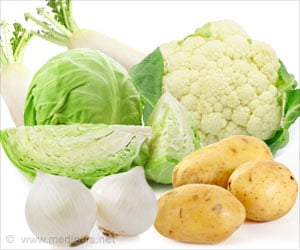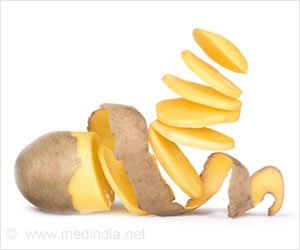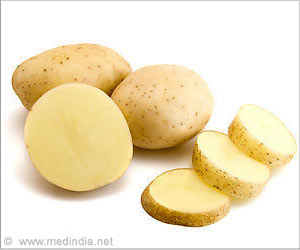Potatoes are filled with key nutrients that aid in weight loss and maintain blood glucose levels.
- Potatoes are packed with nutrients
- Potatoes can help you lose weight and keep your glycemic index low
- Tips for maximizing the nutritional value of potatoes
Did you Know That Potatoes can be Healthy?
If not, then this is your guide to making this starchy vegetable a guilt free snack. When we think about potatoes, the first thing that strikes our mind is that ‘potatoes would make us couch potatoes.’ But with this recent study, this saying has become a myth that needs to be busted.In this recent study, it was demonstrated that potatoes do not negatively impact the body mass index and blood glucose level, which is contrary to the belief that potatoes can increase weight and blood sugar level. Potatoes are filled with key nutrients, and packed with health benefits (1✔ ✔Trusted Source
Low-Energy Dense Potato- and Bean-Based Diets Reduce Body Weight and Insulin Resistance: A Randomized, Feeding, Equivalence Trial.
Go to source).
Can you Lose Weight by Eating Potatoes?
When we think of vegetables that are healthy, we do not think of potatoes, but we should. Potatoes have developed a reputation for causing weight gain and an increased risk for type 2 diabetes and often find themselves on a list of foods to avoid, especially for individuals with insulin resistance.“People tend to eat the same amount of food regardless of its calorie content in order to feel full,” said Candida Rebello, Ph.D., an assistant professor at Pennington Biomedical. “By eating foods with a higher weight that are low in calories, you can easily reduce the number of calories you consume. The key aspect of our study is that we did not reduce the portion size of meals but lowered their caloric content by including potatoes. Each participant’s meal was tailored to their personal caloric needs, yet by replacing some meat content with potatoes, participants found themselves fuller, ate quicker, and often did not even finish their meal. In effect, you can lose weight with little effort.”
The study involved 36 participants between the ages of 18 and 60 who were overweight, had obesity, or had insulin resistance. Participants were fed precisely controlled diets of widely available common foods, including either beans, peas, and meat or fish, or white potatoes with meat or fish.
Both diets were high in fruit and vegetable content and substituted an estimated 40% of typical meat consumption with either beans and peas or potatoes.
Previous studies have shown that eating beans and peas improves blood glucose levels in individuals with newly diagnosed type 2 diabetes. To increase the dietary fiber component of the potatoes, they were boiled with the skin intact and then refrigerated between 12 and 24 hours. Potatoes were incorporated into the main lunch and dinner dishes.
It was observed that the participants not only lost weight but also had a better blood sugar level and improved insulin resistance.
Pennington Biomedical Research Center’s Executive Director, John Kirwan, PhD, and Principal Investigator on the study said, “Obesity is an incredibly complex disease that Pennington Biomedical is tackling on three different fronts: research that looks at how and why our bodies react the way they do, research that looks at individual responses to diet and physical activity, and policy-level discussions and community programs that bring our research into strategies our local and global communities can use to live healthier lives. These new data on the impact of potatoes on our metabolism is an exciting addition to the arsenal of evidence we have to do just that.”
What Makes Potatoes Nutritious?
To start with, potatoes are fat-free, cholesterol-free, sodium-free, loaded with vitamin C, and a good source of potassium. The skins provide substantial dietary fiber. Many compounds in potatoes contribute to antioxidant activity, and interest in cultivars with pigmented flesh is growing (2✔ ✔Trusted SourceStarchy Carbohydrates in a Healthy Diet: The Role of the Humble Potato
Go to source).
But it is also important to note that consumption of fresh potatoes has declined while processed products have increased in popularity. As the potato becomes a staple in the diets of an increasing number of humans, small differences in its nutritional composition will have major impacts on population health.
How to Prepare Potatoes to Reap Their Benefits?
Add Vinegar to Your Potatoes:
Adding vinegar and storing the salad in the fridge can significantly lower the glycemic index. You can also dress your salad with spring onions, onions, and chives in order to make it more delectable, healthy, and sumptuous (3✔ ✔Trusted Source
Vinegar dressing and cold storage of potatoes lowers postprandial glycaemic and insulinaemic responses in healthy subjects
Go to source).
Cold Storage of Your Potatoes:
Cold storage can help reduce the effect of potatoes on the blood sugar level after a potato meal (3✔ ✔Trusted Source
Vinegar dressing and cold storage of potatoes lowers postprandial glycaemic and insulinaemic responses in healthy subjects
Go to source).
Roast Your Potatoes:
Simple recipes that call for roasting sliced potatoes with a bit of olive oil, rosemary, and sea salt are a perfect example.
Use Broth Instead of Milk in Your Mashed Potatoes:
Try adding low-fat chicken broth in place of milk to your mashed potato recipe—it works just as well and will reduce the calorie and fat content. Thus, with clever and smart use of potatoes, they can become a healthy part of our diets and lives.
References:
- Low-Energy Dense Potato- and Bean-Based Diets Reduce Body Weight and Insulin Resistance: A Randomized, Feeding, Equivalence Trial. - (https://europepmc.org/article/med/36367708)
- Starchy Carbohydrates in a Healthy Diet: The Role of the Humble Potato - (https://pubmed.ncbi.nlm.nih.gov/30441846/)
- Vinegar dressing and cold storage of potatoes lowers postprandial glycaemic and insulinaemic responses in healthy subjects - (https://pubmed.ncbi.nlm.nih.gov/16034360/)
Source-Medindia
















